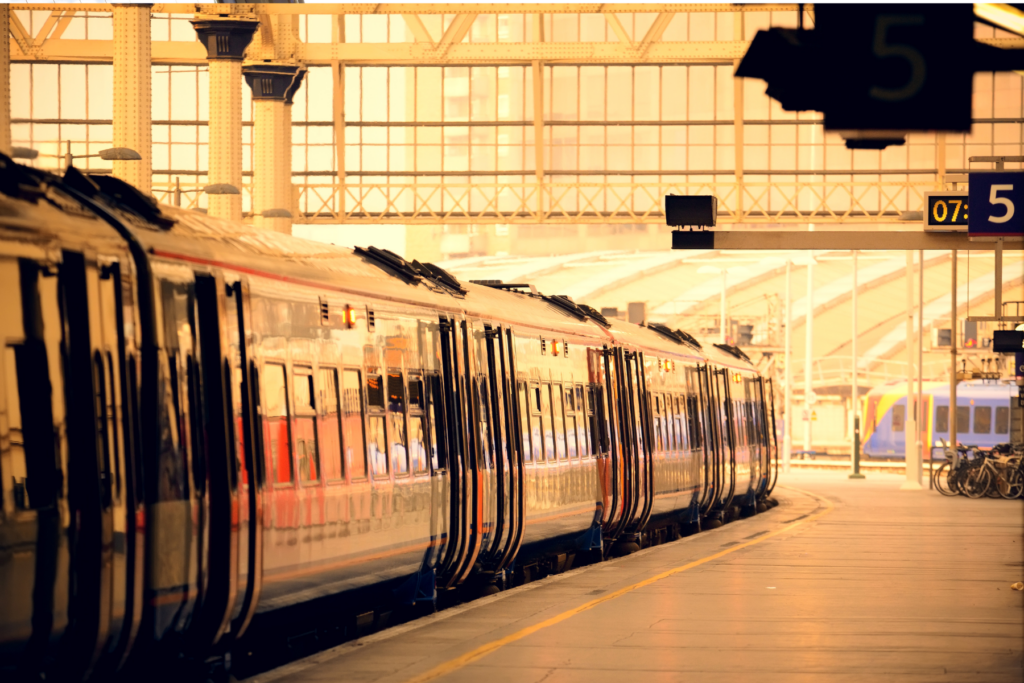UK Government Establishes Shadow Great British Railways

The UK government is progressing the reform of Britain’s railways as the Public Ownership Bill moves through its final stages in the House of Commons.
The reforms aim to prioritise passengers and address longstanding issues of delays, cancellations, and unreliable services.
They are also expected to generate significant savings for taxpayers, estimated at 150 million GBP annually, by reducing fees paid to private companies.
The government’s rail reform aims to to prioritise passengers over private companies
© Canva
A key element of this reform is the establishment of Shadow Great British Railways (Shadow GBR), a precursor to the full implementation of Great British Railways (GBR).
This new body will unify the operation of track and train services under a single organisation, aiming to improve the efficiency and reliability of the rail network.
Shadow Great British Railways
The creation of Shadow GBR marks the beginning of a comprehensive overhaul of the UK’s rail system. It brings together key leaders from the Department for Transport, Network Rail, and publicly owned operators to collaborate closely on improving passenger and freight services.
This includes CEO of Network Rail, the Director General for Rail Services in the Department for Transport, and the CEO of DfT OLR Holdings Ltd (DOHL)
This move is seen as a critical step towards the eventual formation of GBR, which will assume full responsibility for both rail services and infrastructure.
“Today, I am firing the starting gun on the biggest reforms to our railways in a generation. I am determined to end the chaos, delay and disruption faced by people on train journeys every day.
“Establishing Shadow Great British Railways marks a significant step towards delivering a unified railway with passengers at its heart by bringing together track and train, and by progressing the Passenger Railways Services Bill we’re one step closer to public ownership which will help put our railways back on track.
“This government will direct every penny into creating a stronger, more reliable rail network that works for everyone.
“This is about making the railways work for the people that use them – putting passengers first and driving up performance.”
Public Ownership Bill
The Public Ownership Bill is designed to bring the UK’s railways back into public ownership. The government’s intention is to reverse the effects of “fragmented management” and create a more reliable and passenger-focused service.
The Bill is a central component of the government’s broader strategy to revitalise Britain’s railways, making them more efficient, accessible, and affordable.
In addition to legislative changes, the government is also working on modernising the railway workforce. This includes proposals to lower the minimum age for train drivers from 20 to 18, with the aim of accelerating driver training and improving the system’s resilience.
Upcoming Initiatives
Alongside the structural reforms, the government has announced several initiatives aimed at enhancing the passenger experience. A new Rail Sale is planned for early next year, offering up to 50% off train tickets to encourage more people to use the railways. This initiative will coincide with the 200th anniversary of Britain’s passenger railways.
Furthermore, nearly 27 million GBP has been allocated to extend tap-in, tap-out technology to 45 additional stations, including London Stansted. This will simplify train travel for passengers, especially those transitioning from international flights to domestic rail services.
Related
Why investing in women is a vital next step for…
Get Nadine White's Race Report newsletter for a fresh perspective on the week's newsGet our free newsletter from The Independent's Race CorrespondentGet our fre
Business secretary signals major shift on electric car policy to…
In a determined effort to retain Nissan’s manufacturing presence in Britain, Business Secretary Jonathan Reynolds has vowed to implement “substantial c
Joint Statement: Business Secretary and Fujitsu Services Ltd
Business and Trade Secretary Jonathan Reynolds today (Friday 7 March) met chiefs for Fujitsu in Tokyo to begin talks over the cost of redress for victims of th
UK foreign secretary backs multilateral defence funding for Europe
UK foreign secretary David Lammy has said that a new multilateral fund will be needed to secure Europe’s defence as he confirmed that Britain is “open to”













